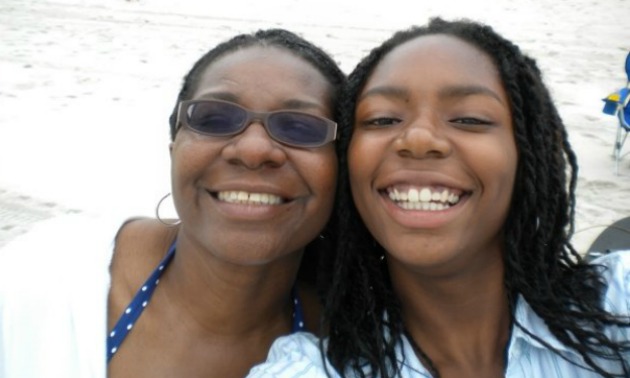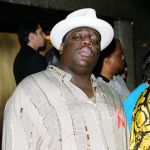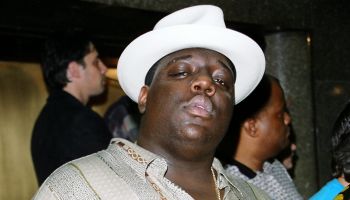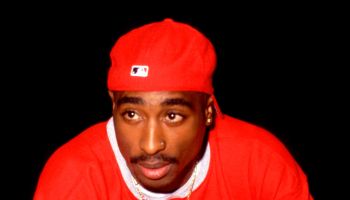
Source: Monique John / Writer Submission
The relationship I have with my mother is the most contentious, ambivalent relationship I have with anyone I know.
I’ve gone to great lengths not to have to live under her roof after college—even when it scared me or didn’t make any financial sense to do so. Simply put, having the combination of our personalities in such close quarters is toxic. This isn’t because I don’t like her. We’re just far too similar to one another to comfortably and consistently exist in the same place. We’re both perfectionists. We’re both stubborn and incredibly proud. No matter how much we try to fight it, we both struggle with managing our time and are notorious for being late among our friends. We’re also terrifying to others when we’re upset, even when we don’t mean to be. The similarities between us make us clash all the time.
Similarities in our character aside, when I was growing up, the thing about my mother that I absolutely couldn’t understand or tolerate was her inability to talk to me about men. It was only until I became a woman with my own set of romantic experiences and until I learned more about her story that I understood why she found it such an intimidating and complex conversation.
I’ve since learned that not talking to me about sex when I was younger is now one of my mother’s biggest regrets. In our adult conversations, she’s become noticeably more outspoken about the way men have impacted her over the years as a loving and sensual human being.
More importantly, my mother—a woman that will never be featured on a BlogHer panel or cited in an academic journal by my colleagues in the feminist movement—has taught me the most important lesson about sexuality of all: empowerment is realized by the woman who isn’t threatened by her own vulnerability, but basks in it.
My mother’s love story is the most beautiful (and the saddest) that I have ever heard. Mom was a pretty woman: dark skin, high cheekbones, oval eyes, slender build. But she never quite saw her own beauty in the way that others could. Mom used to be shy, too—and rarely came across men that struck her interest. On top of that, she grew up in a different time and place, a child raised in Guyana during the Burnham era. Calling a man for a date in my day is unusual. Calling a man for a date in her day was unheard of. Considering that grandma was the quintessential matriarch who diligently attended bible study every single day, it does not surprise me that mom cannot recall any significant conversations about sexuality with her own mother.
Mom stayed single for most of her years as an unmarried woman. But eventually, during a semester in Jamaica as a med student, she stumbled upon a man that was as brilliant as she was. The two have been deeply in love with one another for almost thirty years.
I only know his face from a photograph that is older than I am. He, like her, is tall, dark and beautiful. I don’t know what he does for a living, what kinds of ties he wears, or what he would even think of me. I just know that if destiny had aligned with my mother’s wishes, I would not be here.
What would you do if you married the wrong person, later realizing that you were supposed to be with someone else? Yes, divorce is the obvious answer. But what if you had been married for over 20 years? Moved to a foreign country to build a unit, a home? Had two beautiful children? What if the love of your life had fallen to the same fate, bound to a family life too rigid and intricate to just walk away from?
What if there was no turning back?
My mother’s love story haunts me because she is living proof of why falling in love is so scary. Our society loves to spew tall tales about single black females as if we are the eighth wonder or some distant relative of Big Foot. Yet finding a black woman who is married or in love with someone is not hard to find. The true myth lies in the happy ending.
Eventually, my mother walked away from her marriage to start a new chapter. Still, she and the love of her life are not together. Once in a daydream, I watched them finally getting married at the ripe age of 70, with their adult children and grandkids standing behind them in the aisles. I’ve since squashed the dream because I later realized that he’s not worth her time or her love. He does not have her courage. I wish my mother would come to the same conclusion. I do not know if this partnership will ever happen, but I’m apt to say that I will ever live to see it.
Despite the disappointing turn of events, I’ve never seen my mother appear more youthful or vibrant in my life. She often dances around her house to happy songs I cannot hear. She is also more fashionable than me now, and tells me of her plans to lose weight, to go out more to socialize and meet new people. If we were the same age, I would go clubbing with her. My mother acknowledges her grief but she doesn’t let it consume her. Doing that would take away from the free spirit that she is.
Sometimes I chastise myself in my head for saying too much when chats with friends shift to our love lives. My mother, however, now has no shame, and tells her daughters as much as she can bear so we don’t make her mistakes. The passage of time has shown me who my most trusted and important confidant is in this world. I once created an army of girlfriends to confide in just so I wouldn’t have to tell my mother anything about my sexual experiments or my insecurities. But many of those girlfriends fell off from petty arguments, babies, and jobs and graduate programs out-of-state. Now I speak to my mom about love more than anyone I know.
Love is powerful and intimidating to us because it is infinite and abstract. It means different things to each of us, and the way we feel about it can change over something as trivial as an unreturned phone call or as daring as a leap of faith.
When I think of love, I think of my mother.
When I think of my mother, I think about my fear of the unknown, the uncertainty around finding my own happy ending—and how came to loathe my vulnerability in my own interactions with men.
When I think of happy endings, I think of how I tried to make my story distinct from the other women in my family—looking to sex as a shortcut to bonding, sensuality, even wisdom. But there are no shortcuts to these things, just as there aren’t any shortcuts to fulfillment or happiness. Our joy lies in our willingness to give and receive love regardless of the response or the outcome. Vulnerability is just a part of the package that we have to accept.
RELATED LINKS:
Only The Best: Mother’s Day Gifts For Moms With Expensive Taste
FAB FINDS: 20 Mother’s Day Beauty Gifts She Will Adore
Aww! Celebs Celebrating Their First Mother’s Day
Here’s What I Came To Understand About My Mom Once I Became A Woman Myself was originally published on hellobeautiful.com














